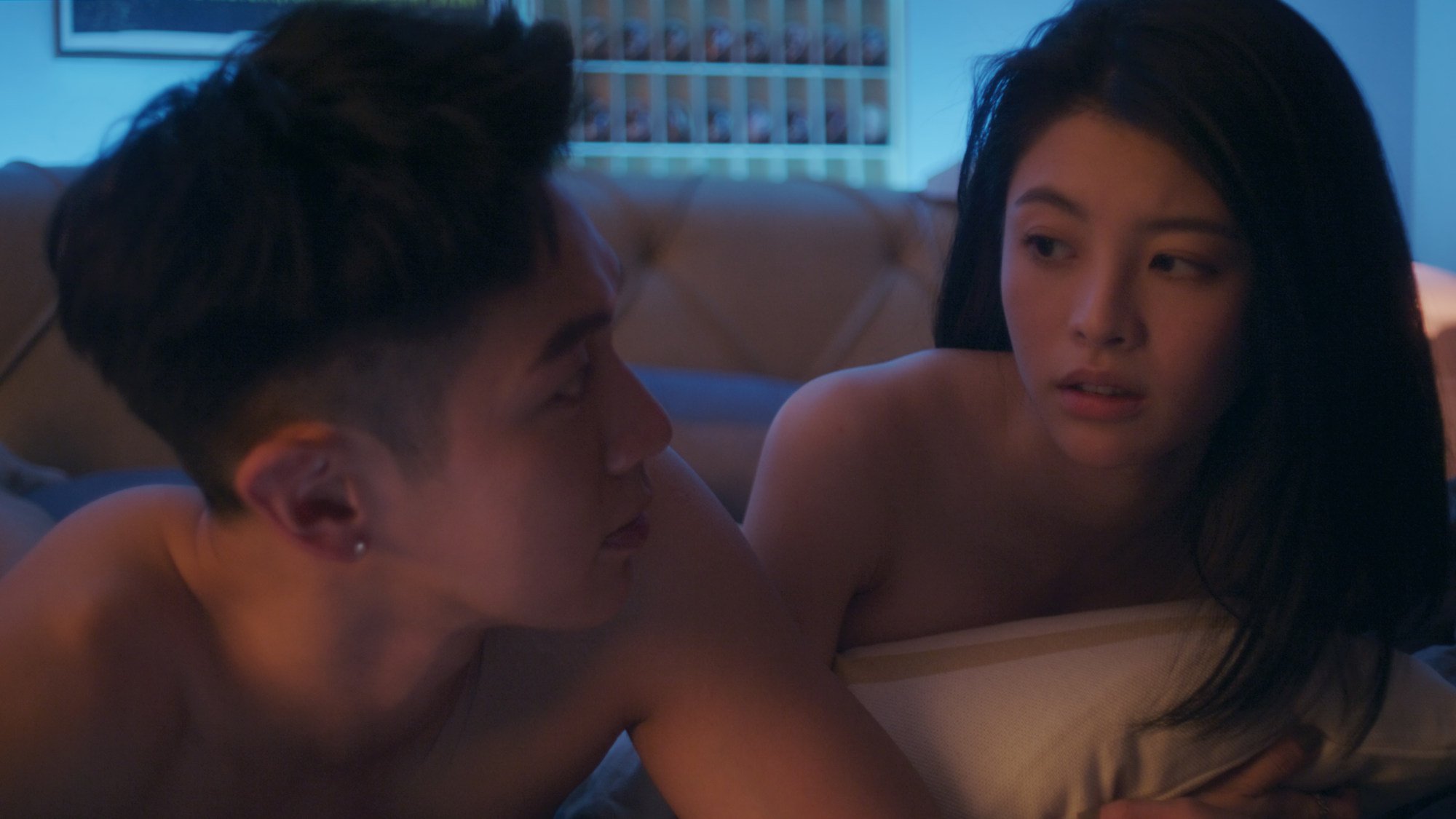4/5 stars
Traditional attitudes towards intimacy and relationships contrast with more frank and open discussion of sexuality, to mostly winning effect, in Let’s Talk About Chu.
The latest collaboration between Netflix and Taiwanese production house Machi Xcelsior Studios, the eight-episode romantic comedy series from writer-director Remii Huang offers a lively, frequently amusing, and ultimately heartfelt watch.
Chan Tzu-hsuan leads the star-studded cast as Chu-ai, the youngest of three siblings and a burgeoning sex advice vlogger, who struggles to apply her “Only sex, no love” mantra to her own complicated personal life.
By day, Chu-ai works as a beautician at a waxing clinic, but her heart is set on becoming a famous online sex therapist. Her channel has yet to go viral, and she attracts as many lecherous trolls as genuine fans, but she is determined to promote a healthy, non-judgmental dialogue about sex, and most importantly, to lead by example.
Her current hook-up, spoiled rich kid Ping-ke (Kai Ko Chen-tung), shares Chu-ai’s attitude and happily follows her strict laundry list of rules, which include no kissing, cuddling or sleepovers.

Chu-ai shares a stinky old flat with her brother, Yu-sen (JC Lin), an accomplished blackjack player who regularly frequents an underground casino. After a messy break-up with his controlling boyfriend, Yu-sen gets blind drunk and runs up a huge debt.
This prompts small-time gangster A-yueh (Wu Chien-ho) to lock him into a tour of the rival gambling houses in the hope of recouping his losses. What starts out as an antagonistic and combative partnership soon takes an unexpected turn that catches them both off guard.
Chu’s elder sister Wei-wei (Kimi Hsia Yu-chiao) is also facing romantic challenges. She works as a librarian at the university where she studied under her now-husband, Professor Lin Shi-chieh (Umin Boya).

Recently, their relationship has hit the skids. They have decided not to have children, much to the chagrin of her mother (Miao Ke-li), and Wei-wei has convinced herself that Shi-chieh is having an affair with one of his current female students (Wang Yu-xuan).
Despite all of her children having grown up and left home, Miao’s overbearing matriarch cannot help but interfere in her children’s personal lives.
She deems both of Chu-ai’s professional pursuits to be vulgar and embarrassing and urges her to find a nice boy and settle down. She desperately wants Wei-wei to have a child, convinced that it is the only way to save their marriage, and fusses over Yu-sen while turning a blind eye to his personal life – because he is the son.

Amid all this, Chu-ai and her siblings discover that their parents’ marriage is also in jeopardy when their mother declares, seemingly out of the blue, that she has kicked their father (Hong Sheng-te) out of the house and is demanding a divorce.
Over the course of eight episodes, Huang and her co-writers River Wu and Lo Yali tackle a number of potentially taboo subjects, ranging from masturbation and pornography to sexually transmitted infections and anal intercourse, without trivialising them either as inherently humorous or self-consciously shameful.
Characters of all ages are forced to reconcile with their bodies and sexual activity, and while the resulting drama will be far from revelatory for most viewers, it remains something of a novelty to see these topics addressed so adroitly in such a mainstream setting.
Wave Makers: top Netflix election drama by The World Between Us director
Wave Makers: top Netflix election drama by The World Between Us director
This is best exemplified by Chu-ai’s sex advice videos , which play over the end credits of each episode and dish out accurate and useful advice.
Despite its bold strides into relatively uncharted territory, Let’s Talk About Chu remains at its best during its more traditional romantic narrative beats.
Chu-ai’s realisation that she does not practise what she preaches, and might actually want a romantic connection rather than just casual hookups, is obvious from the get-go, but Chan and Ko are likeable enough that you actually find yourself rooting for their characters.

This is made all the more entertaining with the introduction of Chu-ai’s former flame, played by the perennially swoon-worthy Rhydian Vaughan.
It is Wei-wei and Shi-chieh’s rocky romance that proves most emotionally engaging, however. Their flailing marriage is brilliantly realised through a series of keenly observed details, and the series deftly stresses the importance of continued intimacy and communication, especially after years of familiarity have dulled the pangs of lust between them.
Too often, melodramas of this ilk rely too heavily on contrived and frustrating jealousies and misunderstandings to propel the plot forward.

Huang and her creative team therefore deserve credit for populating Let’s Talk About Chu with characters who feel real, and whose approaches to the show’s salacious, hot-button talking points are, while occasionally funny and awkward, also honest and wholly relatable.
Let’s Talk About Chu will start streaming on Netflix on February 2.

